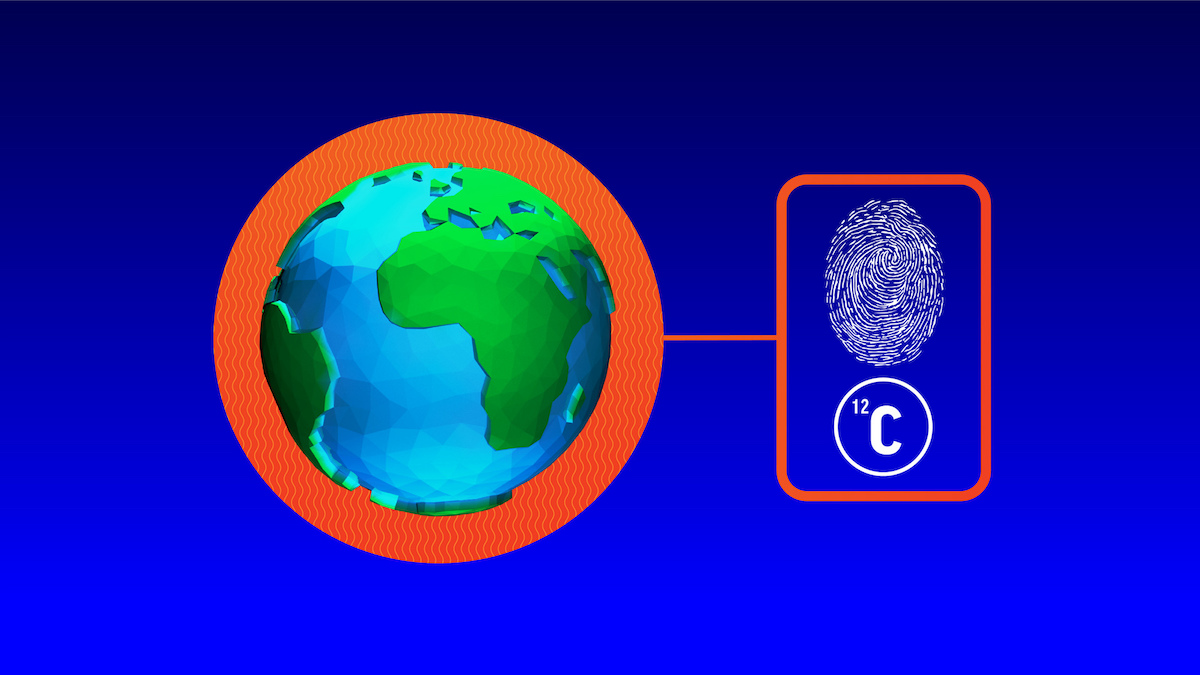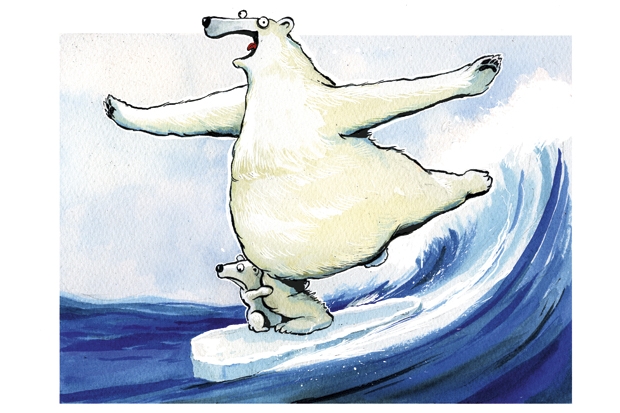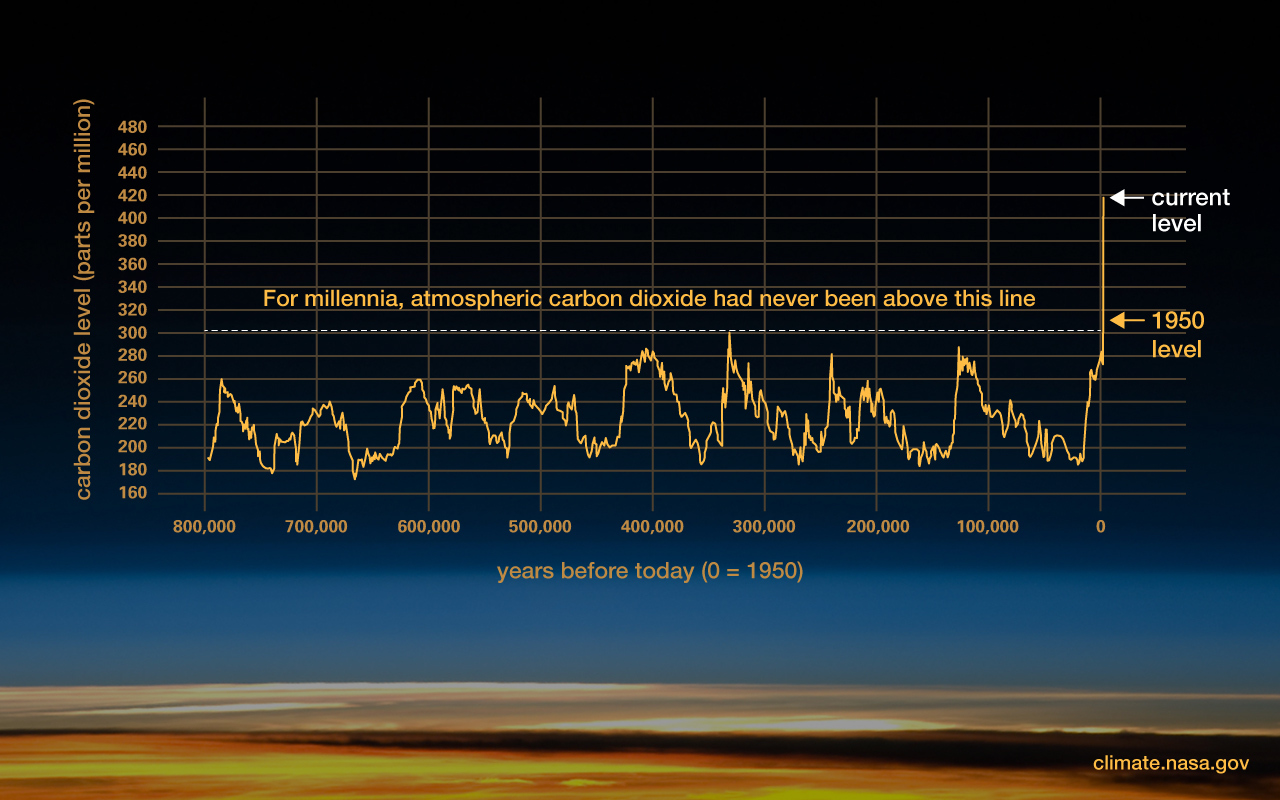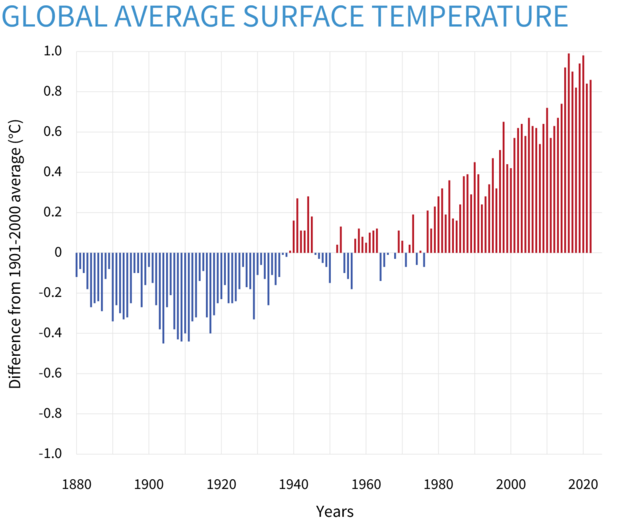abu afak
ALLAH SNACKBAR!
- Mar 3, 2006
- 7,238
- 2,569
- Thread starter
- #2,261
LOLIs man causing climate change? No.
Is co2 causing climate change? Partially, it's just one factor of many that's responsible for the climate not adhering to alarmists graphs.
The co2 output from man is a small factor on the climate, as with every animal past, present, and future.
So increased co2 is good for fauna and flora, the earth is currently in a co2 drought. Levels ideally need to reach 2,400ppm.
Man is 100% responsible for the increase in CO2.. THAT is not even in debate among sober deniers.
Climate Myth...
Human CO2 is a tiny % of CO2 emissions“The oceans contain 37,400 billion tons (GT) of suspended carbon, land biomass has 2000-3000 GT. The atpmosphere contains 720 billion tons of CO2 and humans contribute only 6 GT additional load on this balance. The oceans, land and atpmosphere exchange CO2 continuously so the additional load by humans is incredibly small. A small shift in the balance between oceans and air would cause a CO2 much more severe rise than anything we could produce.”
Before the industrial revolution, the CO2 content in the air remained quite steady for thousands of years. Natural CO2 is not static, however. It is generated by natural processes, and absorbed by others.
As you can see in Figure 1, natural land and ocean carbon remains roughly in balance and have done so for a long time – and we know this because we can measure historic levels of CO2 in the atmosphere both directly (in ice cores) and indirectly (through proxies).
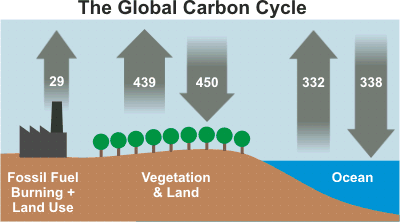
Figure 1: Global carbon cycle. Numbers represent flux of carbon dioxide in gigatons (Source: Figure 7.3, IPCC AR4).
But consider what happens when more CO2 is released from outside of the natural carbon cycle – by burning fossil fuels. Although our output of 29 gigatons of CO2 is tiny compared to the 750 gigatons moving through the carbon cycle each year, it adds up because the land and ocean cannot absorb all of the extra CO2. About 60% of this additional CO2 is absorbed. The rest remains in the atmosphere, and as a consequence, atmospheric CO2 is at its highest level in 15 to 20 million years (Tripati et al. 2009). (A natural change of 100ppm normally takes 5,000 to 20,000 years. The recent increase of 100ppm has taken just 120 years).
Human CO2 emissions upset the natural balance of the carbon cycle. Man-made CO2 in the atmosphere has increased by a third (Now 50%, abu) since the pre-industrial era, creating an artificial forcing of global temperatures which is warming the planet. While fossil-fuel derived CO2 is a very small component of the global carbon cycle, the extra CO2 is cumulative because the natural carbon exchange cannot absorb all the additional CO2.
The level of atmospheric CO2 is building up, the additional CO2 is being produced by burning fossil fuels, and that build up is accelerating.
How do human CO2 emissions compare to natural CO2 emissions?
`
Last edited:
